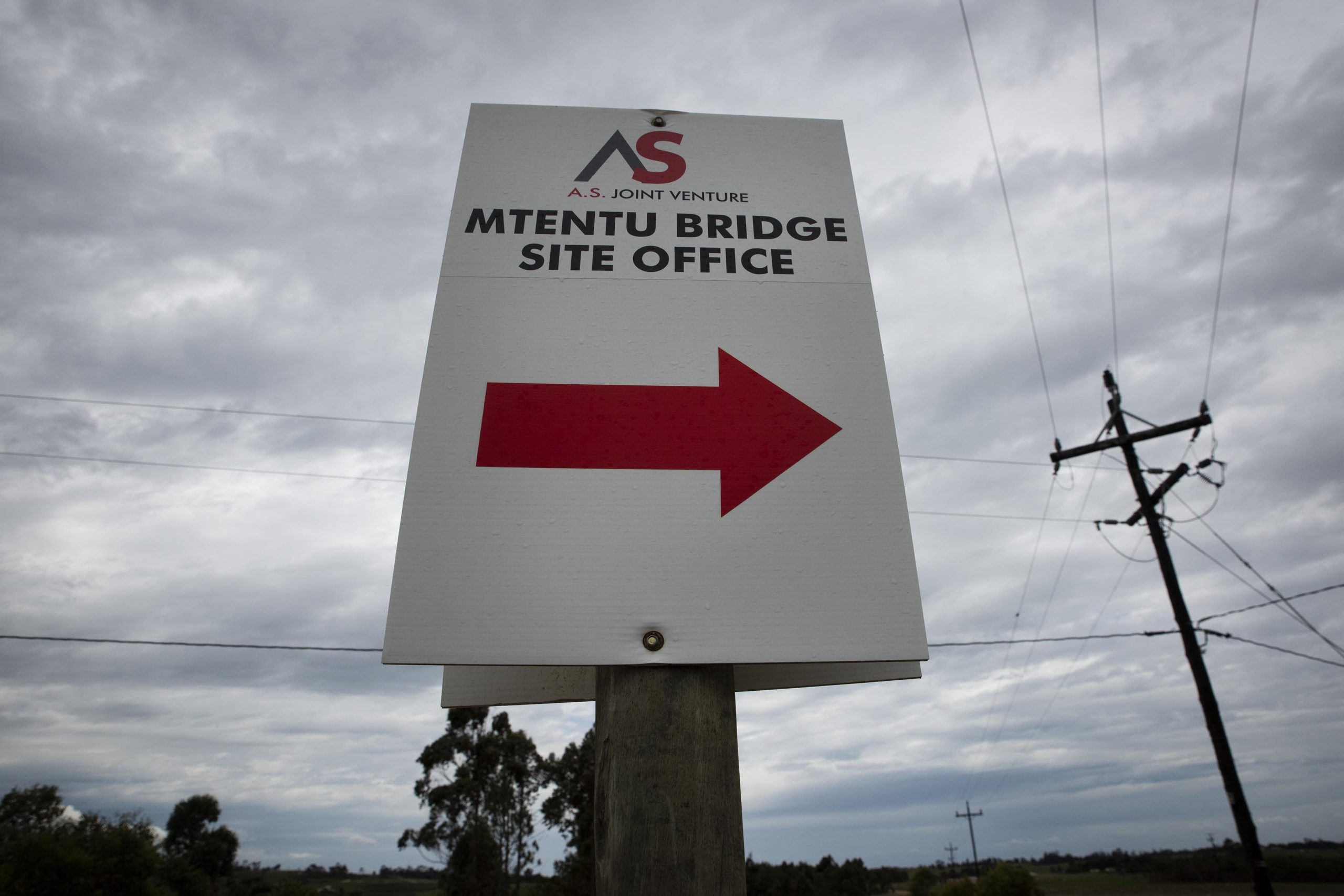Resistance stalls mega Wild Coast bridge
The construction companies building the Mtentu mega bridge in Mpondoland want to terminate their contract with Sanral, citing resistance from within local communities.
Author:
5 February 2019

The future of what was to be South Africa’s largest bridge is uncertain as community activists and construction companies continue to clash.
Construction giant Aveng and Austrian firm Strabag – the companies making up the joint venture that won the R1.6 billion Mtentu mega bridge tender – are attempting to terminate their contract with the South African National Roads Agency (Sanral) to build the bridge.
The move follows a protracted shutdown of construction of the bridge, led by residents from Jama, a small village nearby, that began in October 2018.
Related article:
In a statement released late yesterday afternoon, Aveng-Strabag said it was terminating its contract because it “cannot resume the execution of the works given the risk to the safety and wellbeing of its personnel.
“Threats of violence and levels of community unrest and protest action,” it alleged, had compromised its “ability to execute works safely and in accordance with international best practice”.
Sanral’s interests in the project are protected by two contract securities worth R322.8 million combined. Aveng-Strabag said it is “taking steps to protect” its position in this regard.
Broken promises
During the construction shutdown at Jama, the community said Sanral and Aveng-Strabag had broke promises regarding how many local workers and contractors would benefit from the project.
While the contractors initially committed to spending at least 30% of the project funds on subcontractors from local small, medium and micro enterprises, the figure was later deemed “not feasible to achieve” and revised down to 7%.
Another bone of contention was the conduct of the project’s liaison officer, Zeka Mnyamana. He is the former executive at the Xolobeni Empowerment Company, the local partner of the Australian company, Mineral Commodities, that sought to strip titanium-rich dunes at nearby Umgungundlovu.
Mnyamana, who has been suspended while “serious allegations” against him are investigated, was responsible for sourcing local workers for the project.
Residents to the left, contractors to the right
Sanral now faces a battle on two fronts. At the same time as the roads agency contests the contractors’ attempts to terminate their contracts, it awaits the outcome of a challenge against the 2010 environmental authorisation granted for the N2 Wild Coast Toll Highway Project, of which the Mtentu bridge is a crucial component.
The North Gauteng High Court in Tshwane heard the application brought by a number of coastal Amadiba residents in December 2018. The applicants said environmental affairs made procedural errors when granting environmental authorisation for the highway and did not properly consider alternative routes for the road.
If the applicants are successful, the courts will set aside the project’s approval.
The titanium connection
Many Amadiba residents have long suggested that the N2 is being built to facilitate titanium mining at Umgungundlovu. Their fears were only deepened by Sanral-contracted helicopters carrying geological surveying equipment circling over their homesteads in January.
A well-placed source at the roads agency – who says the Mbizana municipality and local ‘chief’ failed to notify the Amadiba community that the helicopters needed to hover over rural areas while the equipment was calibrated – told New Frame that the helicopters were conducting “subsurface geotechnical investigations along [the] entire [N2] route using electromagnetic equipment.”
The equipment, which resembles a giant lasso hanging below the helicopter, identifies subterranean features such as layers, faults, dykes and the water table “to help with [the] design of [the] road and structures”.
Related article:
A landmark North Gauteng High Court ruling in favour of applicants from Umgungundlovu on 22 November means that customary land cannot be mined without the community’s consent. In a 28 January statement, however, Sanral said the court ruling “will not have any influence” on the construction of the toll road.
In a letter sent to Sanral on 4 February, the applicants challenging the N2’s environmental authorisation said Aveng-Strabag’s attempt to pull out of the project “provides Sanral a unique opportunity to start afresh and rectify its unlawful conduct”.
They have given Sanral until 1 March to “give an undertaking that it will cease construction in the Greenfields Section”, which is the section of the Wild Coast that has, until the planned toll road, been largely undisturbed by development, “unless and until it has completed a Resettlement Action Plan in accordance with international best practice as required by its environmental authorisation”.


